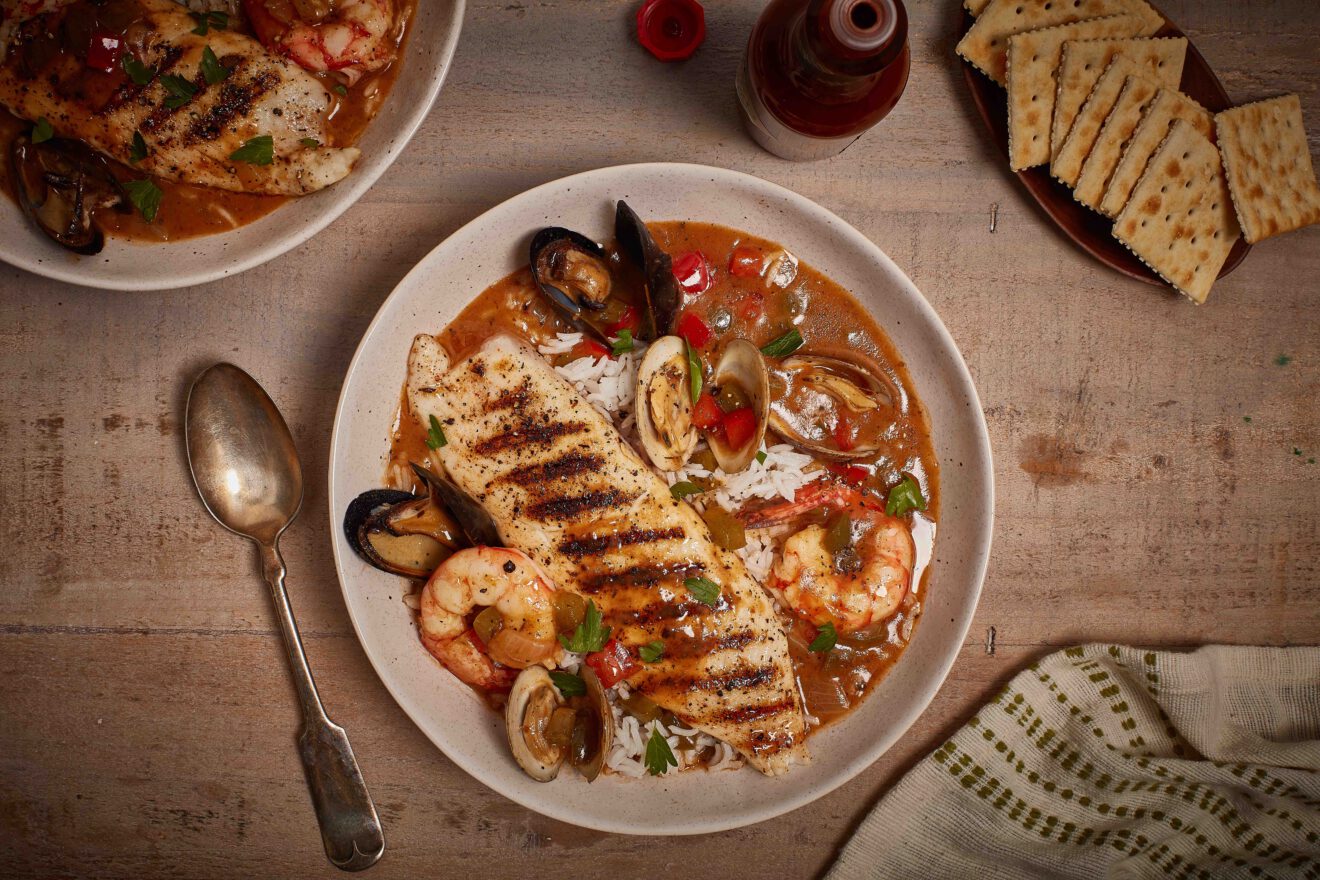This post is sponsored by Regal Springs Tilapia.
Demand for sustainable seafood is on the rise as diners look to do their part in preventing overfishing and minimizing food waste and strain on the environment, but sourcing and selling well-managed seafood can be a challenge for restaurants. Deciding which fish and shellfish to buy can be daunting for chefs, and selling responsibly-sourced options to customers often calls for a conversation, since transparency and provence are key issues when it comes to sustainable seafood.
For chef and Slapfish CEO Andrew Gruel, telling the story of sustainable seafood is at the heart of his restaurant. Gruel founded the modern seafood shack concept in 2011 with a food truck in California’s Orange County aimed at changing the way people think about and choose their seafood.
“Put simply, I love eating seafood and I also love the ocean,” Gruel said. “I think being truly ‘aware’ as a chef means appreciating your food but also understanding where it comes from and how we can protect that stock for future generations.”
Now an internationally franchised restaurant with more than 100 locations in development, the Slapfish brand still focuses on teaching consumers about seafood. The key to educating diners is to let the product and its story take center stage, Gruel said.
“We let customers do the talking and [we] answer their questions. Consumers don’t want to be preached to — they don’t want to be talked down to — they want to be educated with a high quality product,” he said. “For example, those customers that come in asking about farmed vs. wild seafood don’t want to argue about it, they want a good product — farmed or wild — and they want to understand why it is good. We put the proof in the product and the story behind the product.”
Chef Barton Seaver, a former restaurateur, well-known chef and advocate for sustainable seafood, echoed the importance of relying on stories to sell sustainable seafood during a presentation at the National Restaurant Association’s annual show in Chicago last month. Chefs surveyed for the NRA’s What’s Hot 2017 Culinary Forecast ranked sustainable seafood as the No. 5 culinary trend for this year.
Seaver urged chefs in the audience to give diners background on seafood with which they might not be familiar and appeal to their palates by focusing on preparation and flavors. Sourcing seafood from trusted producers that practice sustainable methods is among the advice offered by both Seaver and Gruel. One such producer is tilapia company Regal Springs, which Seaver said is “one of the companies that’s really pioneering sustainability in this newfound favorite.”
In addition to being popular with consumers, tilapia has a long shelf life and — in the case of Regal Springs tilapia — “a great story behind it and the communities it supports,” Seaver said.
Regal Springs raises its tilapia in freshwater lakes in Mexico, Honduras and Indonesia, and the company has committed to improving the farming communities to promote a high quality of life where its people live and work.
“We look for operations that invest back into their people and their communities, especially through health care. We also look for operations that are transparent and have evidence of the cleanliness of the farm. We want to know the water is clean and pristine!” Gruel said.
Regal Springs selects the lakes for its aquaculture farms for their superior water quality and ecological standards, producing fish that are free of antibiotics, contaminants, growth hormones and chemicals.
Educating consumers about the high quality of sustainably farmed fish should be a priority for chefs, said Seaver, who explained that the “artificial divide” between farmed and wild-caught seafood has hurt the seafood industry and chefs’ opportunities to source sustainable seafood.
“The bottom line is: seafood is seafood…we have to be thinking about seafood as a category, and there is no separation between farmed and wild,” he said.
_________________________________________________
If you enjoyed this article, join SmartBrief’s email list for more stories about the food and beverage industry. We offer 20 newsletters covering the industry from restaurants to food manufacturing.
